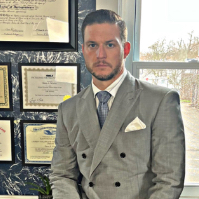Hillsdale County, MI Felony Lawyers
Sponsored Law Firm
-
 x
x

Click For More Info:
-
Hannawa Law PC
2909 E Big Beaver Rd Troy, MI 48083» view mapCriminal Defense Law Full-service legal experts on your side.
Whatever the specific details of your situation may be, our attorneys are ready to fight for you and guide you through every step of the process.
248-466-0770
Not enough matches for Hillsdale Felony lawyer.
Below are all Hillsdale lawyers.
Kimberley Burger
Premises Liability, Federal Appellate Practice, Family Law, Personal Injury
Status: In Good Standing Licensed: 16 Years
Stephen Conrad Bappert
Real Estate, Government, Estate, Divorce & Family Law
Status: In Good Standing Licensed: 16 Years
Brendan J. Sanger
Traffic, Social Security, Child Custody, Divorce & Family Law
Status: In Good Standing
John M. Macdonald
Estate, Family Law, Criminal, Credit & Debt
Status: In Good Standing Licensed: 44 Years
James D. Hayne
Accident & Injury, Criminal, Divorce & Family Law, Estate, Lawsuit & Dispute
Status: In Good Standing Licensed: 54 Years
 Nickolas Hannawa Troy, MI
Nickolas Hannawa Troy, MI AboutHannawa Law PC
AboutHannawa Law PC

